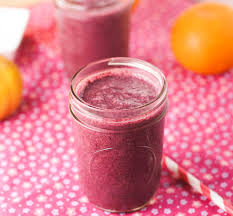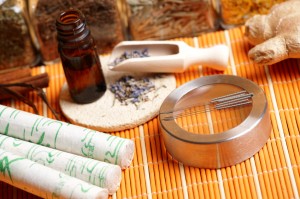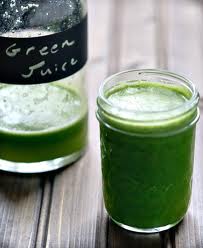It can be an overwhelming time – bringing a new baby home. Here is a gentle, easy guide for parents to overcome common problems during breastfeeding (like low milk production), the healthiest formulas on the market (if breastfeeding is not an option), health concerns in babies like colic, and common concerns in parents post-birth like emotional overwhelm and fatigue, anaemia, and how mums and dads can best support each other during this time.
Breastfeeding: the health benefits and nutritional requirements
If you are able to breastfeed research has found many benefits, ranging from improved mother-baby bonding to post natal weight loss and have course many health benefits for your baby. Breastfeeding for six month or more reduces the risk of your infant becoming overweight or obese in later life compared to those who are not breastfed. Interestingly, formula feeding can alter fat-muscle composition compared to breastfeeding: aged 3-6 months formula fed infants had a lower body fat mass and a 12 months had a higher fat mass than breastfed infants. Other benefits of breastfeeding include: faster uterine recovery, reduced rates of infant illness: digestive problems, allergies, diabetes, asthma and infections.
Breast milk is considered the perfect food for babies, containing components that are not present in formulas. Theses factors enhance your baby’s immune system development and enhance proper growth. Breast milk is also more easily digested than formula and is therefore less likely to cause gastro-intestinal problems such as constipation and diarrhea. However if for some reason you are unable to breastfeed then below is a list of some good quality formulas.
Key dietary recommendations during breastfeeding:
- Hydration: Breastfeeding increases daily loss of fluids by a minimum of 700mls, therefore to meet your requirements you will need to increase your intake of water by at least 700mls.
- Increase energy intake: Making breast milk increases the mothers own energy requirements therefore an increase in calories is needed through this phase. The quality of the breast milk will reflect the quality of the mother’s own diet. The following information will discuss in further detail dietary recommendations for breastfeeding.
- Nutrient dense foods: The diet that the mother consumes governs the nutrient density of the milk that she is providing to her infant. After pregnancy the body can often be nutrient deprived after offering so much of her nutrient stores to the growth and development of the baby. Breastfeeding is no different, the requirements of certain nutrients can be increased threefold during this time. It is important to have an appointment with your Naturopath to ensure both you and the baby are receiving what you need for your health to thrive.
Formula Feeding:
If breastfeeding isn’t an option then below are some good formulas that you may consider.
- Bellamy’s Organic: Certified Organic, BPA free tins http://bellamysorganic.com.au
- Holle: Organic Cows and Goats Formula.
- Novalac: They don’t provide organic but offer specialized formulas for colic, reflux, constipation, diarrhea, sleep and low allergy formulas. http://www.novalac.com.au
If you are having trouble with Breastfeeding or require any further support you can contact The Australian Breastfeeding Association on 1800 686 286.
Common concerns during breastfeeding: low milk production
A common complaint that we hear from our nursing mothers is that their milk supply isn’t adequate at times. Many factors can play a role in the reduced production or flow of breast milk. Some of the most common reasons can be stress, anxiety, nutrient deficiencies and muscle tension through the upper back area.
- Acupuncture: Acupuncture is effective in allowing the body to release and cope with stress and can alleviate muscle tension that maybe hindering the let down reflex. Your practitioner can also show you some simple massage techniques that can be used at home to relax this area.
- Naturopathy: Your Naturopath can assess your diet to identify if you are receiving adequate nutrition to allow for your own health to flourish and also to produce good quality milk for your baby. During the consultation you will also be advised upon some helpful tips to nourish your nervous system and improve your capacity to deal with stress. Your naturopath may prescribe herbs that can help improve breast milk production and flow and/or addressing nutrient deficiencies that may hinder the production of milk.
- Home Herbal Remedies for improving lactation: Fennel & Chamomile, Fenugreek Tea
- Dietary Tips: Providing the body with adequate protein and essential fats is necessary for good quality milk production, below is a quick and easy smoothie recipe rich in both essential fats and protein.
 Recipe: Protein Lactation Smoothie
Recipe: Protein Lactation Smoothie
- 2 heaped teaspoons of protein powder (sprouted brown rice, pea, whey, etc.)
- 2 tablespoons of chia seeds
- 2 tablespoon of flaxseeds (brown or golden)
- 2 heaped teaspoons of nut butter
- fruit (and or super food powders – probiotics, flaxseed, greens powders, spirulina)
- Cinnamon or sweeteners to taste (maple, honey)
- Water
Blend all ingredients in a blender and enjoy.
Common issues with infants
1. Digestive Signs and Symptoms
Like adults, baby’s stools should remain rather consistent a sudden change can indicate digestive upset.
Below are some helpful tips to discern weather what you are seeing in the nappy is “normal or not” and help you read your baby’s digestive health:
- Stools should be a pasty yellow; changes in this can indicate digestive upset.
- Baby shouldn’t strain when passing a stool. A pained look on baby’s face is the easiest way to spot discomfort.
- Any change in frequency, smell, quantity, consistency or color is suggestive of digestive upset.
- It is normal for a baby’s stool to change from yellow to brown once solids are introduced.
Any changes in bowel movements can be caused by a variety of factors (emotional and physical. If the change lasts for 2-3 days or more consult your practitioner. It is also important to remember stools and digestive problems may be reflecting Mum’s diet.
2. Colic
Colic is a term used to explain uncontrollably crying in an otherwise healthy baby. The incidences of colic can occur in up to twenty percent of newborn babies. A baby with colic fusses and cries for more than three hours per day and for more than three days of the week. A colicky baby often looks distressed and uncomfortable and it often difficult to soothe.
What causes colic?
The cause of colic is poorly defined and it is a question scientists have been trying to answer for over 50 years. One of the most important things is that your baby is accurately diagnosed and that the physician is certain there is no other cause for the symptoms.
Some of the causes of colic are as follows:
Potential Causes
- Gastro-esophageal reflux disease (GERD)
- Over or under feeding,
- Milk protein allergy
- Early introduction of solids
- Incomplete or little burping after feeding
- Food allergy
- Low birth weight
- Intestinal micro-flora imbalances or deficiency
- Maternal anxiety
- Overstimulation
 Ask your Naturopath for some help if your baby is suffering from colic, she will be able to help identify the possible cause and therefore offer more effective treatment options. Herbal tinctures, infant probiotics, dietary changes for the mother (if the baby is breast fed) and behavioral recommendations are just some of the things that the Naturopath can advise you upon.
Ask your Naturopath for some help if your baby is suffering from colic, she will be able to help identify the possible cause and therefore offer more effective treatment options. Herbal tinctures, infant probiotics, dietary changes for the mother (if the baby is breast fed) and behavioral recommendations are just some of the things that the Naturopath can advise you upon.
Acupuncture can deal with most concerns with the baby. At Paddington we use a gentle system of treatment for babies and young children called Shoni-shin. Various tools are used to stroke the skin in certain patterns to stimulate the body’s ability to heal itself. They are made from silver, gold and stainless steel usually. Cupping and moxa are also used depending on the child’s condition. Shoni-shin is a very powerful and relaxing treatment which child and babies love.
Home remedies: If the child is breast fed then the mother may be able to drink herbal teas that can then pass through to her breast milk and calm the baby’s digestive system. Herbal aromatic teas such as fennel, dill, chamomile and lemon balm are some of the most effective.
3. Facial signs and symptoms
Knowing some simple body signs can point to things being out of balance and helps to address issues before they become a problem. Treating proactively is the best approach for a happy baby. Listed below are some facial changes and what they may mean.
- Translucent white – relates to weakness with the lungs
- Yellow – digestive weakness
- Red – emotionally upset / heat which relates to sleep disturbances.
- Green – liver disturbances.
4. Benefits of Baby Massage
Massage is a great tool for aiding bonding, calming your baby, stimulating balance in the body, aiding circulation and supporting digestive function.
Below are some general guidelines to baby massage.
Babies are more “yang” in nature and this means that they have a tendency for their energy to go up – which can lead to restlessness, hot head and mouth issues. When massaging your baby you should always include some massage from top to bottom to encourage the energy down. Moving the energy downward allows the brain to settle & balance their energy, leading to relaxation and better sleep. Use long, gentle downwards strokes. You can use cold pressed almond oil as a massage oil (always patch test the oil first prior to use) The massage oil is very nourishing on their skin and is very well tolerated. Use long gentle strokes down your babies back, legs and arms. After a bath of a night time is a great time to do the massage and it calms their energy ready for sleep.
Gentle clockwise rubbing on the belly is a good way to stimulate good digestive movement. Use light pressure in a clockwise direction.
- Remember babies are sensitive so only a few minutes a day is enough.
- If your baby’s skin starts to go red you either need to reduce the pressure, use more oil, or decrease duration.
As each baby’s needs differ, more specific techniques may be given in a consultation. This may include massage and also modified acupuncture techniques (shonishin).
Concerns For Parents: Common concerns post-birth
1. Fatigue
 Feeling fatigued is a very common complaint for new mums and can often lead to stress, home-life tension. Feeling fatigued can also interfere with bonding and the mother being able to really enjoy this stage of the baby’s life.
Feeling fatigued is a very common complaint for new mums and can often lead to stress, home-life tension. Feeling fatigued can also interfere with bonding and the mother being able to really enjoy this stage of the baby’s life.
Identifying the underlying cause and or causes of fatigue is essential in being able to treat it effectively. Many factors can cause fatigue such as:
- Lack of sleep
- Anemia
- Nutrient deficiencies/ digestive complaints
- Blood loss during birth
- Structural imbalances that may have occurred during both pregnancy or labor
- Emotional reasons
Naturopathy
Your Naturopath will be able to assess for any nutrients deficiencies and treat them accordingly. During your consultation you will be advised upon ways to build your vitality. You will be given recipes that are quick and easy to prepare that will ensure a renewed level of energy. Certain herbs are also perfect to nourish and re-build the body after labor; these herbs may be prescribed if necessary.
Acupuncture
Acupuncture has a major impact on fatigue at all levels of health but particularly post delivery. The treatment helps to regulate the body’s energy which can be disrupted during the birthing process. Moxa, a herb which is burnt on certain acupuncture points also help to build the energy and restore vitality.
Dietary Tip
Try having a glass of water with the juice of half a small lime and a small handful of peppermint leaves it helps elevate your energy levels. Green smoothies are a great way to flood the body with energy giving nutrients.
½ a green apple
½ a cucumber
2 handfuls of kale or spinach
½ a handful of mint
1-2 cups of coconut water
1 teaspoon of chia seeds
Blend in a food processor or a blender and enjoy!
2. Feeling stressed, unsupported and isolated
Giving birth and having your new little baby in your life can be a very emotional time. It is a time when you may feel emotionally rocky as you and your partner adjust to your new baby, your new role and new home life. It is not uncommon to feel overwhelmed, maybe a little anxious, or struggle at times to bond with your baby. It is important to know that you are not alone and there are many natural and safe treatments that can be significantly helpful during this time.
One of the main concerns that new mothers express is that they feel exhausted and un-supported and one of the main concerns new fathers have is that they don’t know what they can do to help.
Helpful tips for dad…
Being an active partner is not only supportive but it can make you feel part of the process that mainly involves the mother and baby (feeding and sleeping).
Below are some suggestions on how you can help.
- Massage: Massage your partner’s shoulders, neck and upper back while your partner sits in a chair. It is common for mothers to get headaches and sore shoulders when they are breastfeeding and carrying the newborn. If your partner is unsure of what to do you can always bring him in for a consultation here at the clinic and we can show him how to give a good massage.
- Offer to help, offer support: Sometimes it doesn’t have to be a huge gesture but often just the small things can make a big difference. Show initiative and put a load of washing on, start dinner and help out with some household chores can be greatly appreciated. Bring your partner some water when she is breastfeeding. You could also take the baby for a walk so mum can catch up on some much needed sleep. It is important that you also have time to bond with the baby.
- Offer emotional support: Sometimes during these early months the mother and fathers alike are fatigued and suffering from lack of sleep. During this time you are both more likely to be short tempered with each other and fighting is more likely. Keeping the lines of communication open and supporting one another is very important. Offer a hug, offer encouragement, tell the other partner how great they are going, how proud you are of them. Let the other person know that you are there for them.
Helpful tips for mum.……..
If you need help, please ask for it.
One of the most common things that can occur during this time is that the mother neglects her own needs. If you are struggling then ask for help from your friends, family or loved ones. It could be a request for a meal or for a friend to drop by and watch the baby whilst you have a nap. These little things can have you feeling very supported. Your practitioner can also be a support to you during this time, we are here to offer assistance if you aren’t feeling well.
Nourish your body
 Another trap that is common for new mums is to not nourish their bodies with good quality food. Time is certainly something that is precious but making the time to prepare nutrient abundant food will give back to you in abundance. Making up some casseroles in the slow cooker are quick to prepare and can offer the body much needed nutrition. Eating well will help your body to restore and heal after the pregnancy and will provide you with more energy. Your naturopath will be able to offer you more specific advise and can give you some quick and easy nutrient abundant recipes.
Another trap that is common for new mums is to not nourish their bodies with good quality food. Time is certainly something that is precious but making the time to prepare nutrient abundant food will give back to you in abundance. Making up some casseroles in the slow cooker are quick to prepare and can offer the body much needed nutrition. Eating well will help your body to restore and heal after the pregnancy and will provide you with more energy. Your naturopath will be able to offer you more specific advise and can give you some quick and easy nutrient abundant recipes.
Be kind to yourself
Being kind to yourself during this time is very important. Making sure that you honor what a great job you are doing and know that at times all mums can feel overwhelmed. I find using positive affirmations when you are feeling challenged is a great way to enhance your feeling of wellbeing.
3. Feeling emotionally flat and low
Some new mothers will report feeling a little flat as a result of all the changes that come along with having a baby. If the changes to your mood are very debilitating then seeking the support of your practitioner is important. However sometimes making a few simple changes can go a long way to elevate your mood and have you back feeling good again.
Simple ways to enhance your mood
- Music: Music is a great way to modulate the environment; playing some relaxing music in the background can really help you to feel grounded and relaxed. Alternatively if you need to feel uplifted choose the music to suit how you want to feel.
- Essential Oils: Essential oils are a great addition to any home, they can help elevate a low mood or help you to relax and unwind if you’re feeling a little overwhelmed. You can burn the oils in a vaporizer, put a few drops in a bowl of warm water, place a few drops in the corner of the shower or place a drop on a tissue and inhale as need be, there are many ways to use the essential oils. Uplifting Essential Oils – Orange, Lemon, Geranium or Lemongrass. Relaxing– Lavender, Chamomile, Ylang ylang, Frankincense or Patchouli.
- Sunshine: Our bodies often crave being connected to nature. Going on a picnic to the park, beach or just in your back yard can be a great way to soak up a little sunshine, breathe some fresh air and get your feet into the grass. Getting outdoors can go a long way to have you feeling connected and joyful.
- Exercise: Moving your body and getting the blood flowing helps to release endorphins that can elevate your mood. An early morning walk with your baby in the pram is a great way to start the day.
- Nourish your body: The food that we feed our bodies are little chemical messages that can either have us feeling great or they can deplete our bodies. Making an effort to feed your body with nutrient abundant food will ensure a renewed level of energy and helps your body to make happy hormones.
We are here to help support you and your baby during this special time.



